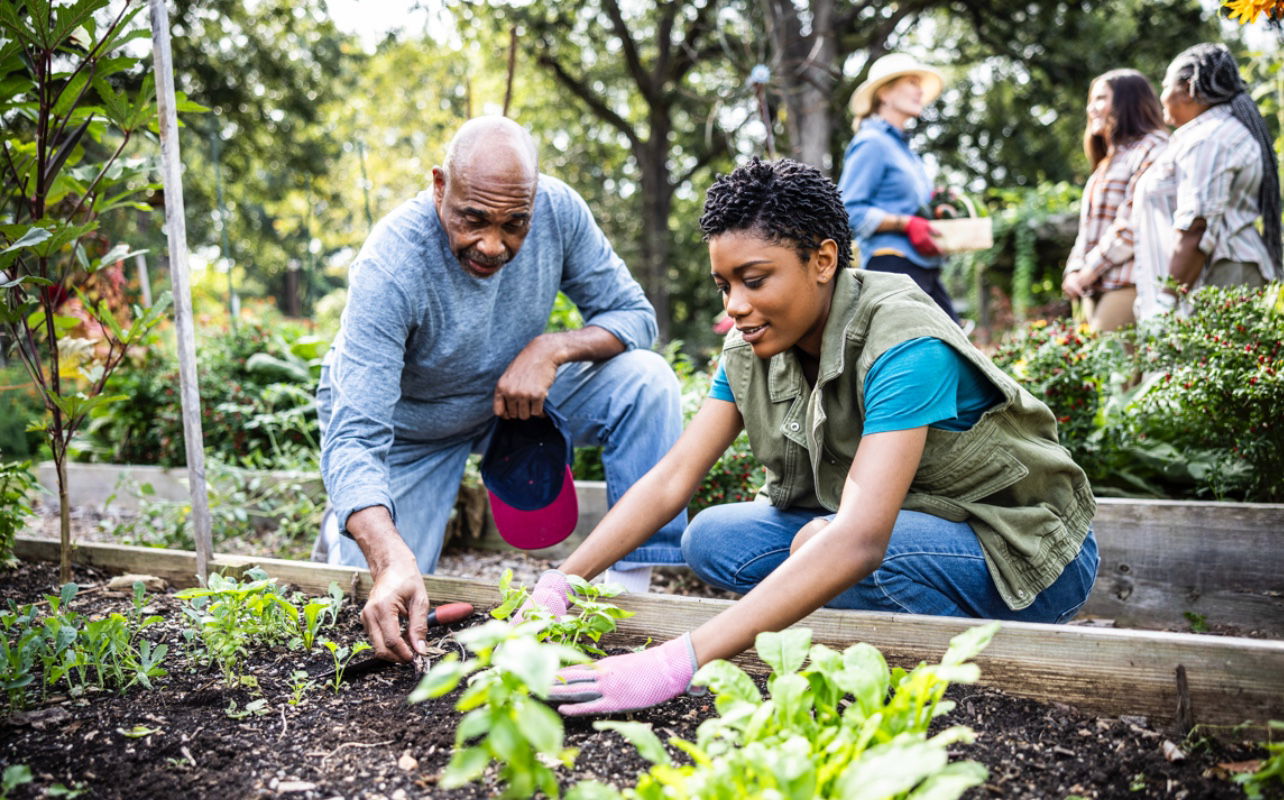
March 8, 2024
Baltimore’s Black Church Food Security Network Cultivates Self-Sufficiency In Communities
Rev. Dr. Heber Brown of Baltimore is sowing the seeds of change, emphasizing self-sufficiency through his Black Church Food Security Network.
Rev. Dr. Heber Brown of Baltimore is sowing the seeds of change in Black and marginalized communities, emphasizing self-sufficiency through the Black Church Food Security Network, or BCFSN. Brown, the organization’s founder, believes that addressing health challenges and improving quality of life can start in people’s backyards.
BCFSN encourages individuals, particularly within African American communities, to grow their own food. Brown sees this as a powerful message that resonates within Black churches, where health challenges like diabetes, heart disease, and cancer are prevalent. His initiative transforms the narrative from depending on charity to fostering an empowered, community-driven food system.
At Pleasant Hope Baptist Church, where Brown served as pastor, a garden was established on church grounds to grow food rather than rely on external charity organizations. This endeavor positively impacted the church community and inspired other churches and pastors to follow suit.
Brown emphasized that BCFSN is not just about producing food; it’s about creating a FUBU (For Us, By Us) food system. Approximately 250 churches nationwide are part of the network, each growing and selling food from their own land.
“We are spurring the co-creation of kind of a ‘FUBU’ food system. A for us by us food system that empowers us to take care of ourselves and to partner with other communities from a position of strength and power, as opposed to depending on benevolence and charity,” Brown explained.
The crops grown within the network are diverse, ranging from tomatoes and bell peppers to corn and watermelon. Brown emphasizes that a person doesn’t need vast acreage in order to grow food; even small backyards, windowsills, or buckets can be utilized effectively.
But recognizing the still daunting nature of cultivating food independently, Brown advocates for a collaborative strategy. He encourages people to engage with neighbors, community groups, and churches, promoting a shared sense of responsibility.
Looking ahead, Brown envisions a future where the younger generation recognizes the power of self-help. He aspires for communities to build for themselves, creating essential resources without relying on external assistance.
RELATED CONTENT: Local Lands, A Black-Owned Farm, Widens Reach For Georgia Residents To Combat Food Deserts